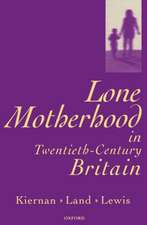Femicide, Gender and Violence: Discourses and Counterdiscourses in Italy
Autor Daniela Bandellien Limba Engleză Paperback – 20 iul 2018
This book questions gendered readings of violence by analyzing how this paradigm has become normalized in Italy since the feminist term ‘femminicidio’, or ‘femicide’, entered the mainstream media during the 2013 general election. It also sheds light on discourses of contestation on the part of family activists, men’s rights campaigners and divorced fathers’ groups. Two counter-discourses emerge. The first is what the author terms an ‘ideology narrative’, for which discourses built around the conceptual category of ‘gender’ normalize simplistic representations of relationships between men and women. The second is a ‘female violence discourse’, which sheds light on under-represented aggressor-victim relations and modifies dominant representations of femininity and masculinity. The author argues that integrating these two discourses into public debates helps to reappropriate the complexity and biological dimensions of (violent) relationships between men and women, often overshadowedby gender/feminist perspectives. In this way, she concludes, we can address neglected social issues that contribute to violence beyond gender. This thought-provoking book will appeal to students and scholars of sociology, critical discourse studies and gender.
| Toate formatele și edițiile | Preț | Express |
|---|---|---|
| Paperback (1) | 481.43 lei 6-8 săpt. | |
| Springer International Publishing – 20 iul 2018 | 481.43 lei 6-8 săpt. | |
| Hardback (1) | 583.78 lei 6-8 săpt. | |
| Springer International Publishing – 29 mar 2017 | 583.78 lei 6-8 săpt. |
Preț: 481.43 lei
Nou
Puncte Express: 722
Preț estimativ în valută:
92.12€ • 98.51$ • 76.81£
92.12€ • 98.51$ • 76.81£
Carte tipărită la comandă
Livrare economică 18 aprilie-02 mai
Preluare comenzi: 021 569.72.76
Specificații
ISBN-13: 9783319838236
ISBN-10: 3319838237
Pagini: 206
Ilustrații: XI, 206 p.
Dimensiuni: 148 x 210 mm
Greutate: 0.27 kg
Ediția:Softcover reprint of the original 1st ed. 2017
Editura: Springer International Publishing
Colecția Palgrave Macmillan
Locul publicării:Cham, Switzerland
ISBN-10: 3319838237
Pagini: 206
Ilustrații: XI, 206 p.
Dimensiuni: 148 x 210 mm
Greutate: 0.27 kg
Ediția:Softcover reprint of the original 1st ed. 2017
Editura: Springer International Publishing
Colecția Palgrave Macmillan
Locul publicării:Cham, Switzerland
Cuprins
1. Introduction.- 2. Discourse, biopower, and identity politics critique.- 3. Gender: hegemonic lens for making sense of VAW and IPV.- 4. ‘Femminicidio’ narrative: A gender discourse of partner violence across feminist crusades and electoral speeches.- 5. ‘Femminicidio’, gender identity and feminism contested. A narrative of ideology.- 6. Abusive women, male and female victims. A discourse at the margin.- 7. Conclusions. Living discourses: A future agenda for critical researcher and social movements.-
Notă biografică
Daniela Bandelli is an independent researcher based in Italy. Her research focuses on critical discourse studies, particularly the role of social movements in challenging and consolidating dominant representations of gender and family issues. She is currently investigating the topic of gestational surrogacy.
Textul de pe ultima copertă
This book questions gendered readings of violence by analyzing how this paradigm has become normalized in Italy since the feminist term ‘femminicidio’, or ‘femicide’, entered the mainstream media during the 2013 general election. It also sheds light on discourses of contestation on the part of family activists, men’s rights campaigners and divorced fathers’ groups. Two counter-discourses emerge. The first is what the author terms an ‘ideology narrative’, for which discourses built around the conceptual category of ‘gender’ normalize simplistic representations of relationships between men and women. The second is a ‘female violence discourse’, which sheds light on under-represented aggressor-victim relations and modifies dominant representations of femininity and masculinity. The author argues that integrating these two discourses into public debates helps to reappropriate the complexity and biological dimensions of (violent) relationships between men and women, often overshadowed by gender/feminist perspectives. In this way, she concludes, we can address neglected social issues that contribute to violence beyond gender. This thought-provoking book will appeal to students and scholars of sociology, critical discourse studies and gender.
Caracteristici
Offers a critique of gender that has global ramifications Provides a significant contribution to feminist discourse regarding violence against women (VAW) Sheds light on moral panics related to VAW














